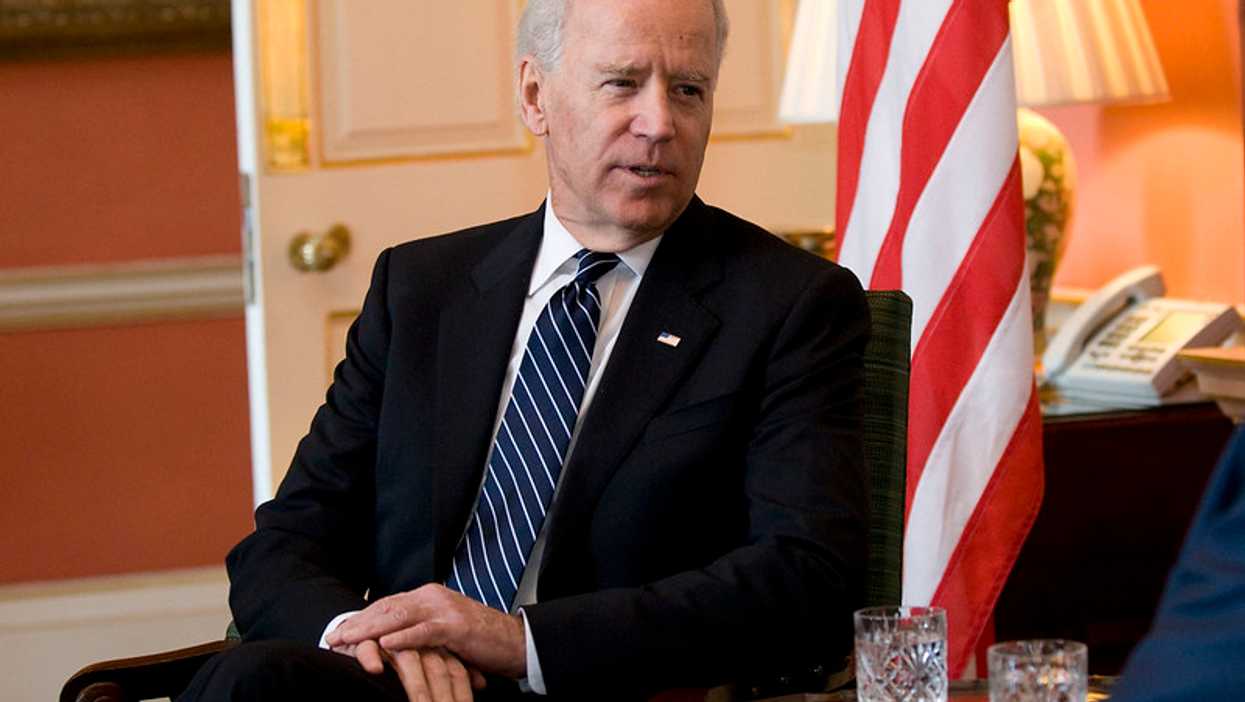
Former Vice President Joe Biden
A majority of Americans live in suburban areas, but not for long. No, they won't be moving. But the places where they live will cease to be suburbs. At least that's what a certain fear-mongering president would have them believe.
Donald Trump has said that Joe Biden's housing plans would "totally destroy the beautiful suburbs." On Thursday, the president announced he was scrapping an Obama-era rule that, he said, would "eliminate single-family zoning, bringing who knows into your suburbs, so your communities will be unsafe and your housing values will go down."
Anyone who has ever glimpsed the vast tracts outside our big cities, where houses with yards and driveways stretch to the horizon, might say, "Good luck with that." The idea that they will undergo a hideous transformation vastly exaggerates what any future president could accomplish, even if he or she wanted to. But Biden and his party do have reforms in mind that, rather than abolish the suburbs, could open them up to more Americans.
Biden favors the Obama administration policy of attaching conditions to federal funds in order to get states and municipalities to eliminate barriers to housing development and expand the supply of housing. Among the policies it would undermine are zoning regulations that allow nothing but single-family houses. Easing those restrictions would make suburban homes less expensive, which in turn would facilitate racial integration.
A few states are leading the way. Last year, California enacted a law making it easier for homeowners to build small backyard houses and convert spaces such as garages into residential units. Oregon approved a measure aimed at forcing municipalities to allow more duplexes and other multifamily housing.
Trump's rhetoric is a blatant attempt to frighten homeowners with the prospect of people of color moving in. That is fitting because strict zoning often originated as a way to keep Black people out of white neighborhoods. By driving up the cost of housing, it has reserved much of suburbia for well-to-do white folks.
Such regulations have also made some cities ruinously expensive. San Francisco has the highest rents in the country because it makes it very hard to construct multifamily buildings. Many suburbs have similar restrictions that keep the supply of housing below the demand.
It's puzzling to hear conservative defend government regulations that deliberately stifle free markets. These rules also prevent landowners from making their own choices about what to build.
A property owner who would like to tear down an old house and put up a duplex or triplex, or add a coach house for the grandparents, is forbidden to do so in many places. Because of minimum lot sizes, parcels that could easily accommodate two or more free-standing homes may have only one.
Would Republicans object if the federal government used its funding leverage to get rid of rent control? Like exclusionary zoning, rent control penalizes owners by dictating what they can do with their properties. Like zoning, rent control artificially reduces the supply of housing. Like zoning, it pushes up costs for the benefit of a protected group. If rent control is bad, exclusionary zoning can't be good.
Why is this any business of the federal government? One reason is that municipalities generally have no incentive to reform, because tight zoning rules enrich existing homeowners by pushing up their home values. Most of the people who stand to gain from a bigger housing supply live - and vote - elsewhere.
With the Fair Housing Act of 1968, Washington made a commitment to dismantle policies that foster residential segregation. Zoning rules have often done exactly that, even in such liberal states as Illinois, California and New York.
Another reason the federal government should act is that the Department of Housing and Urban Development enables this malignant policy. Peter Van Doren and Vanessa Brown Calder of the free market Cato Institute wrote in 2018 that compared with places with loose zoning regulations, "restrictively zoned states received twice as many HUD subsidy dollars, even after accounting for poverty. This suggests current HUD funding schemes are encouraging and incentivizing poor local policy choices on the part of cities and states."
But the notion that reform would doom suburban life as we know it is absurd. A sprinkling of duplexes or small apartment buildings would not turn quiet, safe, leafy communities into wretched hellscapes.
No one has that in mind. The people who would benefit from Biden's approach don't want to smash suburbia. They want to join it.
- Why Pro Publica Bought Racist, Sexist, Bigoted Facebook Ads ›
- Martin Luther King Jr.'s Fair Housing Legacy Must Be Protected ... ›
- Trump Appointees Want To Weaken Fair Housing - National Memo ›
- How Trump Officials Eviscerated America's Fair Housing Laws ... ›
- Returning To His Roots, Trump Promotes Racial Discrimination In Housing - National Memo ›








